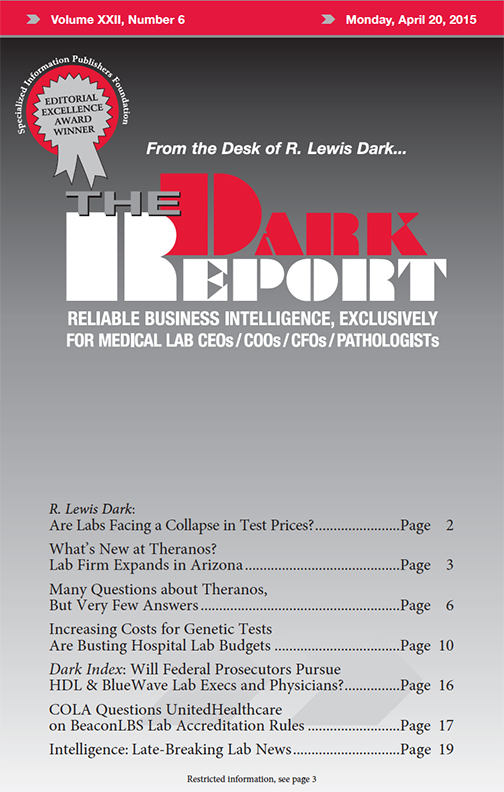CEO SUMMARY: Winston Churchill famously said that “Russia is a riddle wrapped in a mystery inside an enigma.” That description could apply to Theranos, the company that claims it is poised to disrupt the entire clinical laboratory testing industry. In Phoenix, where Theranos is ramping up its clinical lab marketing and operations, competing lab companies have it under the microscope. Some say not all may be going to plan and Theranos has been asked to comment on several issues.
To access this post, you must purchase The Dark Report.


